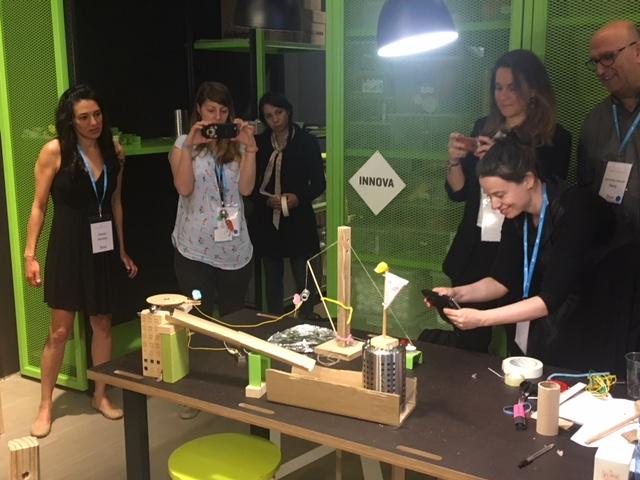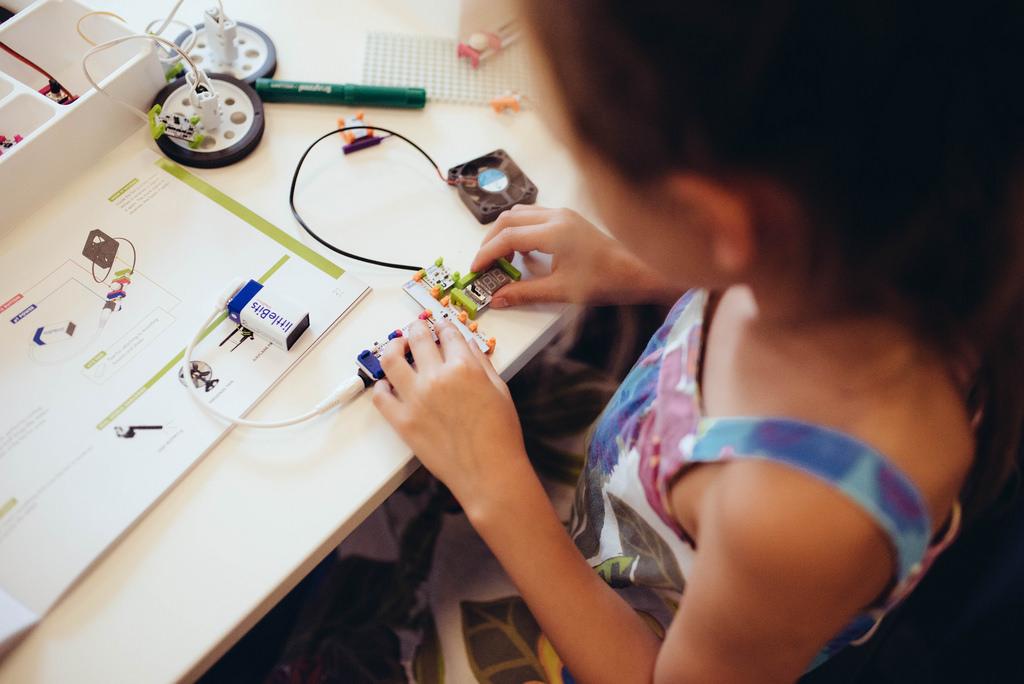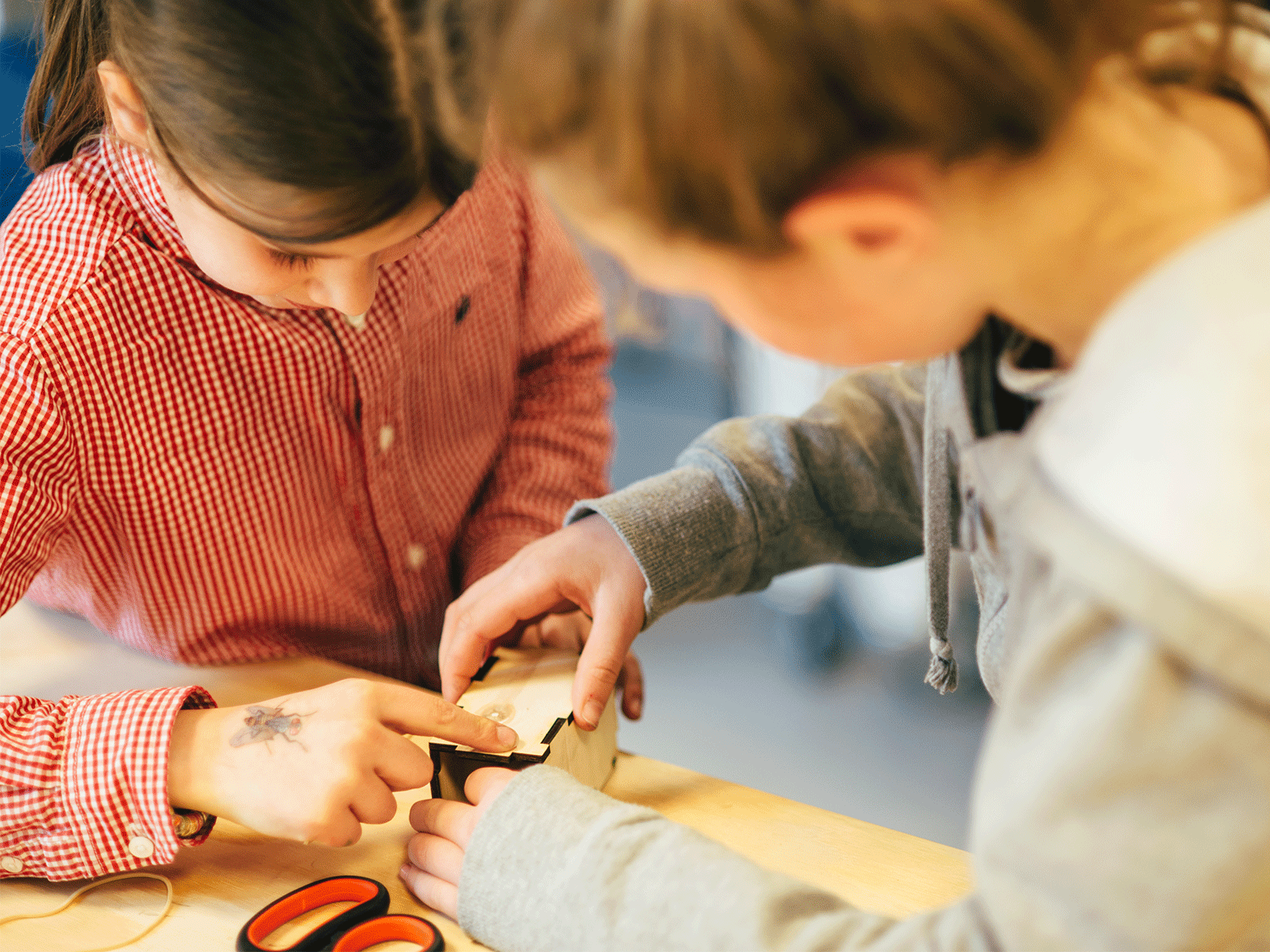Last week I was fortunate to be part of Steamconf 2018 Barcelona. An amazing (and very well organised) gathering of innovative teachers and educators at the beautiful Cosmocaixa Science Centre. The two-and-a-half days felt like a week, with many interesting encounters, tremendous inspiration, and fruitful conversations.
Some of my personal highlights:
I loved Crista Flores’ (author of Making science! Reimagining STEM education and FabLearn fellow), practice-based stories on how she is not afraid to take risks in the classroom and gives children full responsibility for their projects and has great fun in doing so. Quote: "I didn’t know how to solve their problems, I had never done it, they had to find it out themselves". I attended her workshop ‘The Art of Tinkering’ in which we made marble tracks (and used fire in the museum). It was once again a great learning experience and a real pleasure doing and I recommend you to try it yourself with your children or your classroom, using our 'Maker Chain reaction challenge' of Makereducation.nl.
Stefania Druga's (Research Assistant in the Personal Robots group at MIT) talk on 'Democratizing making with AI' was mind-blowing and somewhat disturbing at the same time. Stefania is interested in how embodied intelligent agents could play an active role in supporting children and their families to learn more about artificial intelligence through playful activities. Her research shows that AI Toys are more influential in changing our children’s moral opinions than their parents are. She aims to stimulate understanding of and critical attitude towards AI by developing a platform that allows children (and adults) to experiment, play and make with AI and programme their smart toys themselves, based on Scratch: Cognimates.
Nettrice Gaskins stressed the importance of Arts in STEAM. Her model for 'techno-vernacular creativity' is an area of practice that investigates the characteristics of this production and its application in STEAM. Being the daughter of a computer programming mother, she was stimulated to go into STEM, but she chose to be an artist. It was her art teacher that introduced her to computer programming and now she is a teacher and uses of pop culture to engage her students in STEM in a very creative and powerful way. Check out the Scopes-df project she is working on, co-creating standards-aligned digital fabrication curriculum for STEM education that reflects open-source values.
Ryan Jenkins (co-founder of Wonderful Idea Co and former Exploratorium’s The Tinkering Studio in his presentation very vividly helped us deepen our knowledge on the art and importance of tinkering. And the opening performance Ada Ada Ada by Zoe Philpott on the original woman in tech, Ada Lovelace’s, who wrote the world’s first complex algorithm in 1843, was not only enormously inspirational and engaging, it also triggered an interesting discussion on women in tech and the importance of female role models.
I was honoured to host a workshop and present our work on maker education in our FabSchool programme, Teacher Maker Camps, DO IT and Maakplaats 021 library project. And I really enjoyed the talks I had with teachers afterwards on efforts and strategies of establishing a learning ecosystem in which schools, libraries, museums and maker spaces cooperate to realize our ambition of 'maker access for all'; to give every child the opportunity to get acquainted with maker education and develop his/ her maker mindset and skills.
The organizers of the conference, the amazing Paca and Mariona Ciller, founder of Soko Tech, had matched all speakers to a local peer, that briefly presented his or her own work, provided local context, introduced the speaker and moderated the Q&A and discussion afterward. In my opinion a great idea that worked very well and I intend to steal the concept and apply it to our FabLearn Netherlands conference ;in September. I was fortunate to be matched to Santi Fuentemilla, of Fablab Barcelona and our partner in DO IT and I would like to thank him for his kind introduction and great conversation during the speakers' dinner on Friday night. The dinner that, by the way, took place on the roof terrace of Paca and Mariona’s home. A sign and experience of hospitality I have rarely experienced before!


